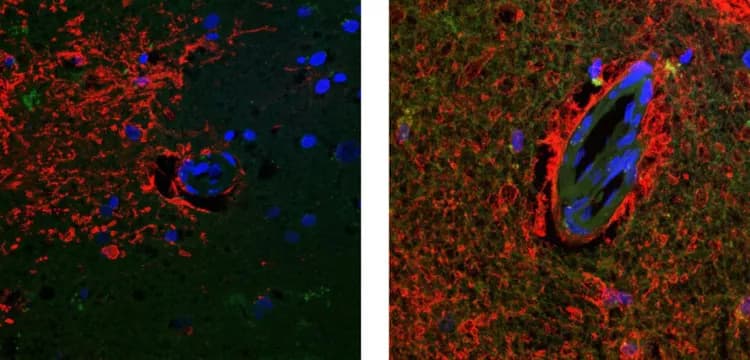
Possible New Target For Treating And Preventing Alzheimer's
A new scientific discovery may provide a future avenue for treatment and prevention of Alzheimer's disease.
A study published Nov. 28 in the journal JAMA Neurologyexamined aquaporin-4, a type of membrane protein in the brain. Using brains donated for scientific research, researchers at OHSU discovered a correlation between the prevalence of aquaporin-4 among older people who did not suffer from Alzheimer's as compared to those who had the disease.
"It suggests that aquaporin-4 might be a useful target in preventing and treating Alzheimer's disease," said senior author Jeffrey Iliff, Ph.D., an Assistant Professor in the Department of Anesthesiology and Perioperative Medicine in the OHSU School of Medicine. "However, we aren't under any illusion that if we could just fix this one thing, then we'd be able to cure Alzheimer's Disease."
Alzheimer's is a progressive disease, most often associated with aging, that causes problems with memory, thinking and behavior. It is the leading cause of dementia worldwide and is currently the sixth leading cause of death in the United States. The disease has no known cure but there are treatments available for some of its symptoms.
Aquaporin-4 is a key part of a brain-wide network of channels, collectively known as the glymphatic system, that permits cerebral-spinal fluid from outside the brain to wash away proteins such as amyloid and tau that build up within the brain. These proteins tend to accumulate in the brains of some people suffering from Alzheimer's, which may play a role in destroying nerve cells in the brain over time.
"This system, and the failure of the system, may be one of many things that goes wrong in people with Alzheimer's disease," Iliff said.
The study closely examined 79 brains donated through the Oregon Brain Bank, a part of the OHSU Layton Aging and Alzheimer's Disease Center. They were separated into three groups: People younger than 60 without a history of neurological disease; people older than 60 with a history of Alzheimer's; and people older than 60 without Alzheimer's.
Researchers found that in the brains of younger people and older people without Alzheimer's, the aquaporin-4 protein was well organized, lining the blood vessels of the brain. However within the brains of people with Alzheimer's, the aquaporin-4 protein appeared disorganized, which may reflect an inability of these brains to efficiently clear away wastes like amyloid beta. The study concluded that future research focusing on aquaporin-4 -- either through its form or function -- may ultimately lead to medication to treat or prevent Alzheimer's disease.
In 2015, a multidisciplinary team of scientists from OHSU led by Iliff was awarded a $1.4 million grant from the Paul G. Allen Family Foundation to use to develop new imaging techniques based on MRI to see these processes at work in the aging human brain for the first time.
Materials provided by Oregon Health & Science University. Note: Content may be edited for style and length.
Disclaimer: DoveMed is not responsible for the adapted accuracy of news releases posted to DoveMed by contributing universities and institutions.
Primary Resource:
Zeppenfeld, D. M., Simon, M., Haswell, J. D., D’Abreo, D., Murchison, C., Quinn, J. F., ... & Iliff, J. J. (2016). Association of Perivascular Localization of Aquaporin-4 With Cognition and Alzheimer Disease in Aging Brains. JAMA neurology. DOI: 10.1001/jamaneurol.2016.4370
Related Articles
Test Your Knowledge
Asked by users
Related Centers
Related Specialties
Related Physicians
Related Procedures
Related Resources
Join DoveHubs
and connect with fellow professionals

0 Comments
Please log in to post a comment.